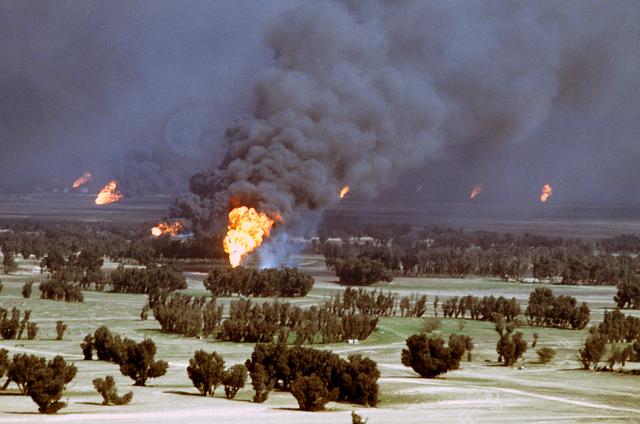War Environmental aspects
Enlarge text Shrink textStudy of the environmental impact of war focuses on the modernization of warfare and its increasing effects on the environment. Scorched earth methods have been used for much of recorded history. However, the methods of modern warfare cause far greater devastation on the environment. The progression of warfare from chemical weapons to nuclear weapons has increasingly created stress on ecosystems and the environment. When wars create energy shortage and rise of fossil fuel prices, it disrupts global climate action. The military sector is responsible for around 5.5% of global GHG emissions (not counting emissions from the conflicts themself), which are not included in GHG assessments on global and country level. Specific examples of the environmental impact of war include the American Revolutionary War, the American Civil War, World War I, World War II, the Korean War, the Vietnam War, the Gulf War, the Rwandan Civil War, the Kosovo War, the Iraq War, and the 2022 Russian invasion of Ukraine.
Read more on Wikipedia >
 Topic
Topic










